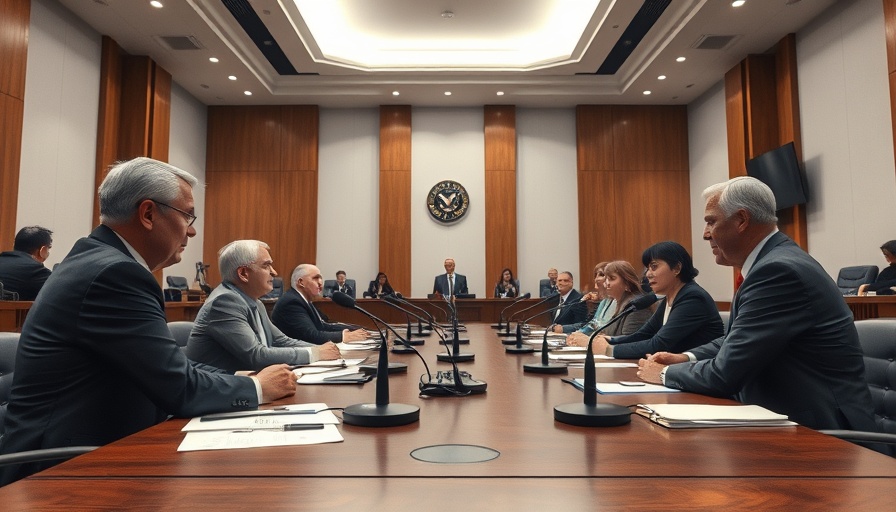
Understanding Revere's FY2026 Budget: A Community Perspective
The Revere City Council has launched its budget hearings for Fiscal Year 2026, revealing a proposal for a balanced budget exceeding $309 million. This initiative is spearheaded by Mayor Patrick Keefe and city finance director Richard Viscay, who presented the financial outlines during a recent session. The proposed budget doesn’t just encompass numbers; it encapsulates the community's vision for sustainable living and growth.
Budget Breakdown: What’s at Stake?
At the core of this financial proposal is a significant investment in education, with the school budget alone accounting for roughly $131.5 million. This includes an increase in the school transportation budget to $9.7 million. The importance of education in fostering a healthy and informed community cannot be overstated; investing in schools directly correlates with the overall wellbeing of families, as it provides better educational resources, which in turn leads to healthier lifestyles.
Addressing Future Financial Responsibilities
One of the notable aspects of Viscay's presentation was the projection of future financial obligations, particularly regarding the new high school project. Despite a recent $10 million cut to its budget, the city’s commitment to enhancing educational facilities remains steadfast. This action reflects a long-term strategy prioritizing the city’s youth, which aligns with the overarching goal of nurturing a healthier generation capable of thriving in their environment.
Rising Costs: A Community Challenge
Venture deeper, and you’ll find that the budget discussion isn’t solely about numbers but also about the implications of rising costs—most notably a staggering 17 percent increase in health insurance costs. These expenses impact families directly, shaping their financial health and, by extension, their overall wellness. Discussions surrounding increased water and sewer rates could further challenge economic stability for local residents.
Community Funding Initiatives: Balancing Revenue and Costs
With a keen eye on community welfare, Viscay emphasized that the majority of the budget will be funded through property taxes and state aid. By ensuring a balanced budget where revenues equal expenses, the administration encourages a sense of community responsibility. Local residents need to understand how their contributions directly impact essential services like public safety, which receives just under $34 million in funding. A well-funded safety department translates to a safer living environment, promoting peace of mind and healthy living.
Engagement Opportunities: Connecting the Community
For residents of Revere, this budget presentation represents an opportunity for engagement. Understanding how these financial decisions affect their daily lives encourages community discourse. Residents can advocate for improved public transport systems and educational resources that support families. This collective voice can lead to impactful changes in future budgets, securing funding for wellness programs and services that align with a commitment to healthy living in Massachusetts.
Addressing Misconceptions and Transparency
There seems to be some misconceptions around budget allocations—many might think that rising taxes only serve administrative interests. However, transparency in how revenues are allocated is critical for trust within the community. Increased fees, like those for water and sewer, can be seen as necessary adjustments aimed at maintaining quality services rather than punitive measures against residents. Understanding the 'Why' behind these increases helps in building stronger community ties.
Looking Ahead: Future Implications for Revere
A focused approach towards budgeting can lay the groundwork for a healthier Revere in years to come. The city’s preparation to engage in long-term discussions regarding student transportation and overall cost management can elevate the quality of life for its residents. As the budget deliberations unfold, staying informed and involved is essential for residents. It allows for an inclusive community dialogue where every voice matters in shaping Revere's future.
In conclusion, the FY2026 budget hearings are not just a mundane civic duty; they are a call to action for residents to understand how city governance impacts their lives. Engaging with local government and advocating for necessary changes can pave the way for a vibrant, healthy community.
 Add Row
Add Row  Add
Add 




Write A Comment